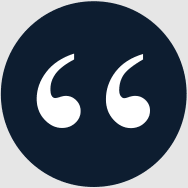Rockland County, NY Liquor Manufacturer and Distributor Licensing Attorney

Lawyer Assisting Brewers, Distillers, and Wholesalers in Obtaining Liquor Licenses in Hudson Valley Area
There are many opportunities available for businesses to produce and sell alcoholic beverages, including beer, wine, and spirits. However, manufacturers and distributors will need to meet strict liquor licensing requirements in order to operate this type of business in the state of New York. When applying for a liquor license, it is important to work with an attorney who can help you meet your requirements and complete the application process successfully.
At the Law Offices of Robert S. Lewis, P.C., we have helped a wide variety of businesses address liquor licensing issues, including assisting with license applications and defending against violations. With more than 35 years of legal experience, Attorney Robert Lewis understands the concerns that business owners face, and he is ready to work with you and ensure that your business is prepared for success.
Liquor Manufacturer Licenses
Those who wish to operate a business that manufactures alcoholic beverages will need to obtain the correct type of license from the New York State Liquor Authority based on the type of beverage and the amount being manufactured. In some cases, a manufacturer may be eligible for a craft brewery or distillery license that allows for certain business activities not available to other manufacturers. A business that operates a location in the state of New York dedicated to manufacturing liquor must obtain one of the following types of licenses:
- Brewer – Allows a license holder to manufacture beer.
- Farm Brewer – Allows a license holder to manufacture up to 75,000 barrels of New York State labeled beer and/or cider per year.
- Micro Brewer – Allows a license holder to manufacture up to 75,000 barrels of beer per year.
- Cider Producer – Allows a license holder to manufacture cider.
- Farm Cidery – Allows a license holder to manufacture up to 250,000 gallons of New York State labeled cider per year.
- Distiller Class A – Allows a license holder to manufacture distilled spirits and/or operate a rectifying plant.
- Distiller Class A-1 – Allows a license holder to manufacture up to 75,000 gallons of distilled spirits per year.
- Distiller Class B – Allows a license holder to operate a rectifying plant.
- Distiller Class B-1 – Allows a license holder to operate a rectifying plant producing up to 75,000 gallons per year.
- Distiller Class C – Allows a license holder to manufacture fruit brandy.
- Farm Distiller Class D – Allows a license holder to manufacture up to 75,000 gallons of New York State labeled liquor per year.
- Winery/Special Winery – Allows a license holder to manufacture wine.
- Farm Winery/Special Farm Winery – Allows a license holder to manufacture up to 250,000 gallons of wine and/or cider per year from agricultural products grown in the state of New York.
- MicroFarm Winery – Allows a license holder to manufacture up to 1,500 gallons of wine and/or cider per year from agricultural products grown in the state of New York.
- Combined Craft – Allows a license holder to operate a business combining two or more of the following licenses: farm brewery, micro-brewery, farm cidery, farm winery, micro-distillery, micro-rectifier, and farm distillery.
- Mead Producer – Allows a license holder to manufacture mead and/or braggot.
- Farm Meadery – Allows a license holder to manufacture up to 250,000 gallons of New York State labeled mead and/or braggot per year.
An owner of a liquor manufacturing business must be over the age of 21, and they are not allowed to own an interest in a retail alcohol business. Before applying for a state liquor manufacturer license, a business will typically need to file an application for a federal liquor permit through the Alcohol and Tobacco Tax and Trade Bureau (TTB). Liquor manufacturers must also meet price posting requirements by filing a wholesale schedule of prices charged when selling liquor to distributors and a retail schedule of prices charged when selling liquor to licensed retailers.
Liquor manufacturers will also need to meet labeling requirements for all beverages sold in the state of New York. All brand labels for liquor products must be registered with and approved by the New York State Liquor Authority. Manufacturers will also need to obtain federal approval for product labels from the TTB.
Liquor Wholesaler Licenses
Companies that plan to become distributors of alcoholic beverages must obtain a wholesaler’s license with the New York State Liquor Authority. This license will allow a business to sell alcohol to retailers or wholesalers in New York. Depending on the type of license, a distributor may be allowed to sell beer, liquor, wine, or cider to retailers or other wholesalers. Those who receive an importer’s license will be allowed to import beverages and sell them to licensed wholesalers. In addition to a New York State wholesaler license, distributors must receive a federal permit from the TTB.
Contact an Orangetown Liquor License Lawyer
The process of applying for a license to manufacture or distribute liquor can be complex and confusing, but with the right attorney on your side, you can ensure that your business will meet the requirements to obtain the license you need. Contact the Law Offices of Robert S. Lewis, P.C. today at 845-358-7100 to schedule a free consultation and learn more about how we can help. Se Habla Español.


